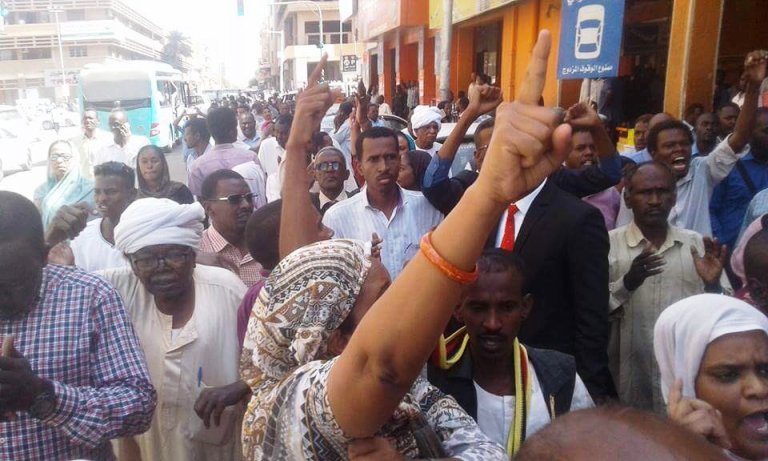Sudanese security releases six journalists detained during bread protests

January 21, 2018 (KHARTOUM) – Sudan’s National Intelligence and National Security Services (NISS) on Sunday released six journalists detained during last week’s anti-austerity protests.
As part of the 2018 budget, the government cut subsidies on wheat imports, driving the price of bread up and the Sudanese to the streets to protest against their rising cost of living.
The NISS arrested 15 journalists for covering two protests on 16 and 17 January in Khartoum and Omdurman towns. Seven of them were released last week.
On Sunday, six of the detained journalists have been released including Reuters reporter Khalid Abdel Aziz, AFP reporter Abdel Moneim Abu Idris Shawky Abdelazim, a journalist at the independent daily Al-Youm Al-Tali, Imtinan El Radi, a reporter for the same newspaper, and Magdi Al-Agab of Al-Watan daily.
However, two other journalists, Amal Habani, a female reporter for Al-Taghyeer news website and Kamal Karar of the Sudanese Communist Party mouthpiece Al-Midan are still in detention.
Late on Sunday, Sudan Tribune learnt that Abdel Aziz and Abu Idris were still in the process of being released from the Kober Federal Prison in Khartoum.
Several media watchdogs and human rights organizations have condemned the detention of the Sudanese journalists and called for their immediate release.
Also, the United States Administration on Friday denounced the harassment, arbitrary detention and attacks on journalists, expressing “deep concern about freedom of expression, the closing of political space for all Sudanese, and Sudan’s poor overall human rights record”.
The arbitrary arrest of journalists was seen as an attempt form the security apparatus to dissuade the independent local media and international correspondents from covering protests organised by the opposition parties and advertise their activities.
(ST)
